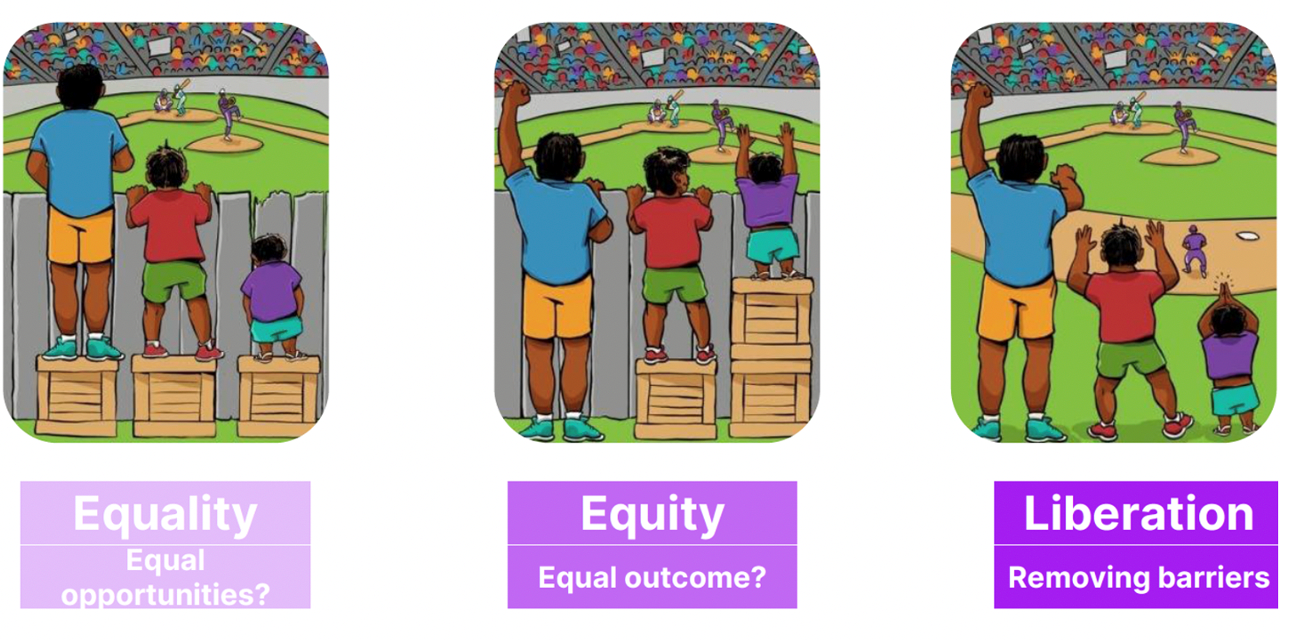Diversity and Inclusion
"Diversity is being invited to a party, inclusion is being asked to dance."
- Verna Myers
"Delft University of Technology stands for diversity and inclusion. It tries to ensure that everyone who wants to study or work here feels at home and can bring out the best in themselves"
-
TU Delft strives to be a safe, diverse and inclusive learning and working environment for all staff, students and guests. Realising this ambition requires courage and the participation of everyone within the TU Delft community. It starts with having an open dialogue within the TU Delft community about equality, diversity and inclusion in respect of the visible and non-visible differences among all staff and students.
TU Delft has a Diversity and Inclusion office, which is committed to nurturing and promoting a respectful, accessible, diverse and inclusive TU Delft community for all staff, students and guests. So, whether you are a student, staff member or guest at TU Delft, you can contact them with general questions or ideas about Diversity & Inclusion via diversity@tudelft.nl.
Besides this, Faculty Diversity Officers have been appointed to promote diversity and inclusion within their faculty. Each Faculty Diversity Officer (FDO) will work together with the D&I Office, staff and students at their faculty to create and enhance an inclusive and diverse working and learning environment. Here you can find more information and contact details. -
The principles of equality and inclusiveness are part of the core values of the European Union. The EU sees the importance that as diversity increases in many respects, there is a greater need to learn to navigate diversity and to create inclusive and cohesive societies in Europe.
The EU Programmes: Erasmus+ and the European Solidarity Corps are key programmes that can support this. European Union (EU) programmes should provide opportunities that are accessible for all. However, some people cannot benefit equally from these opportunities because they face various barriers. Inclusion of people facing barriers or who have fewer opportunities in education, training and youth work is a key objective of several policy initiatives.
Diversity in the context of this strategy refers to all kinds of differences. Some types of diversity are more obvious than others, such as ethnicity, religion, culture and language. But diversity expands beyond just these aspects. It also refers to different (dis)abilities, educational levels, social backgrounds, economic situations, health statuses, or the place of origin – as described in the definition of "people with fewer opportunities".
Part of this diversity strategy involves the creation of a centralized European platform about inclusion and support services offered by higher education institutions, national agencies and ministries for education to international students. Visit Inclusive Mobility to see what resources are available to you for when you go abroad.
-
The Exchange Mobility Team at ESA (Education & Student Affairs) is committed to providing the opportunity for all students to receive funding to go abroad as part of their programme, be it a BSc or MSc programme.
How can we ensure that all students are given this opportunity? Students come to TU Delft from within the Netherlands and from around the world. All students have the same wish to complete their chosen programme in Delft in a safe and inclusive environment. Where the students come from, is diverse; economically, culturally, and socially. Should a student want to go abroad within their Bsc or Msc programme, these diversity factors should not affect the chance to study abroad.
For students planning to go abroad, the Erasmus + Scholarship has additional ‘top ups” available for students.
Additional funding can be granted for underprivileged students or students who experience one or more obstacles. A monthly extra subsidy called a top-up, additional to the regular Erasmus+ subsidy can be applied only to the following groups:
Students with a disability:
Students with disabilities or health problems must provide a medical certificate or other official statement about the physical or health problems.
Students with financial difficulties:
Students under financial strain must submit a statement/proof of award of a supplementary grant from DUO.
More information regarding the amounts of top-ups and how to apply can be found on the Study and Traineeship scholarship webpages.
-
Every year a Study Abroad Week involving all faculties is organised. This event is important to provide essential information to anyone planning to go abroad. We include students that have been abroad to share their experiences and they can offer advice should anyone need it. Should a student be concerned about the cost of living in a certain country or concerned about the extra help they can get for their disability, students who have already been there can provide an answer to this question.
Via our TU Delft Partner University website, students have access to travel reports of previous students. Via the reports you can check out the cultural differences, financial information, accessibility information and university teaching methods among many other factors to help prepare yourself. Many services are open to you at TU Delft to help you reach your goals no matter what your background is.
We strive to improve the accessibility to our scholarship programmes application systems, by providing user friendly and clearly understood procedures. Our website not only provides information regarding TU Delft and EU funding, but there are also scholarship search tools to help you too. Our website pages are regularly updated and improved upon.
With the wide selection of available funding to students we hope to be able to assist all students in their quest.
-
Available soon
